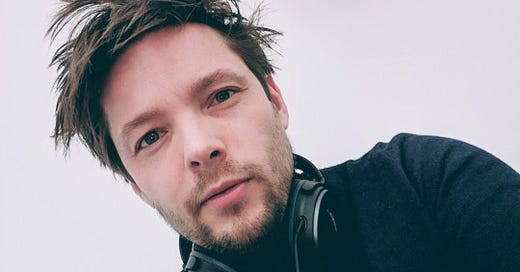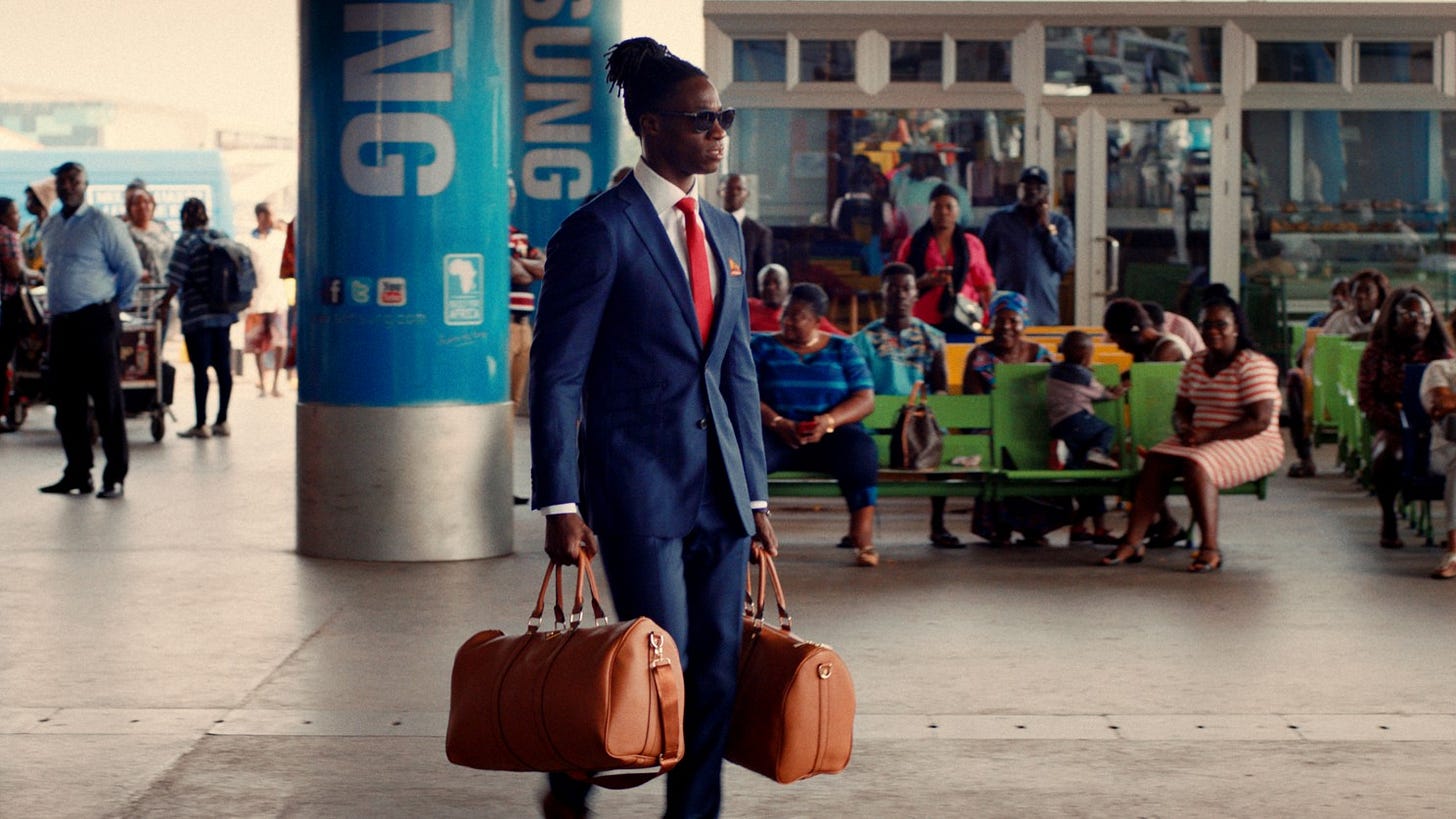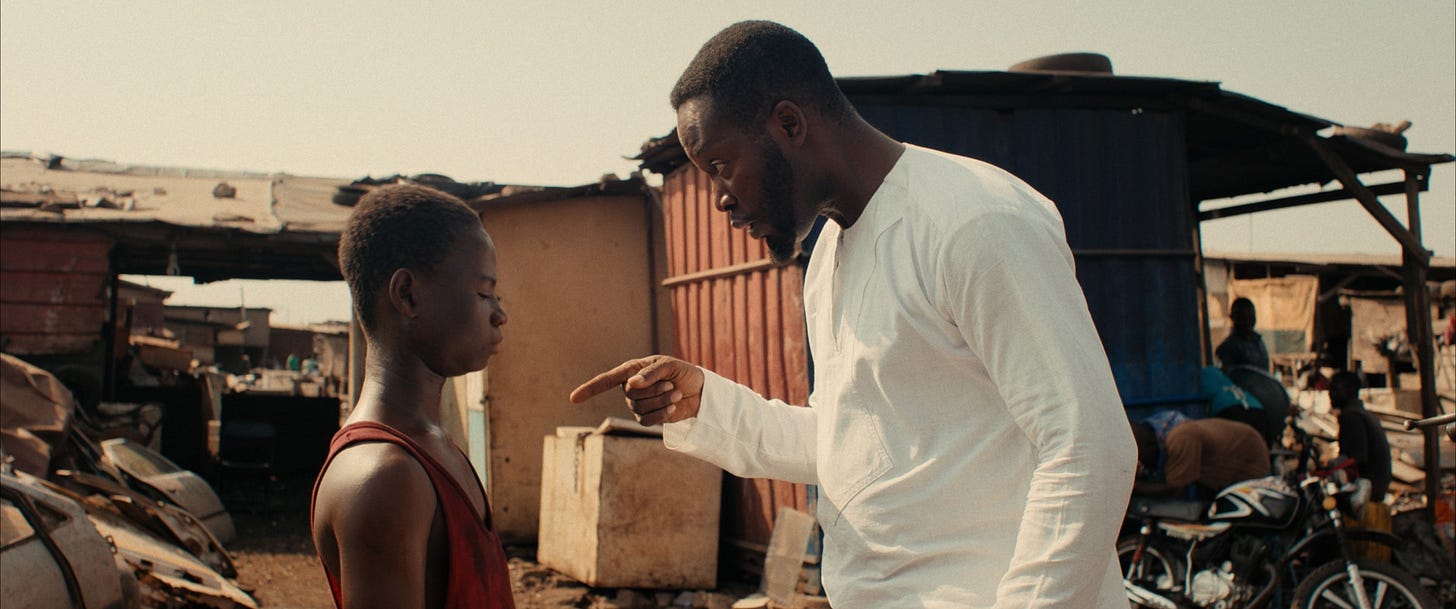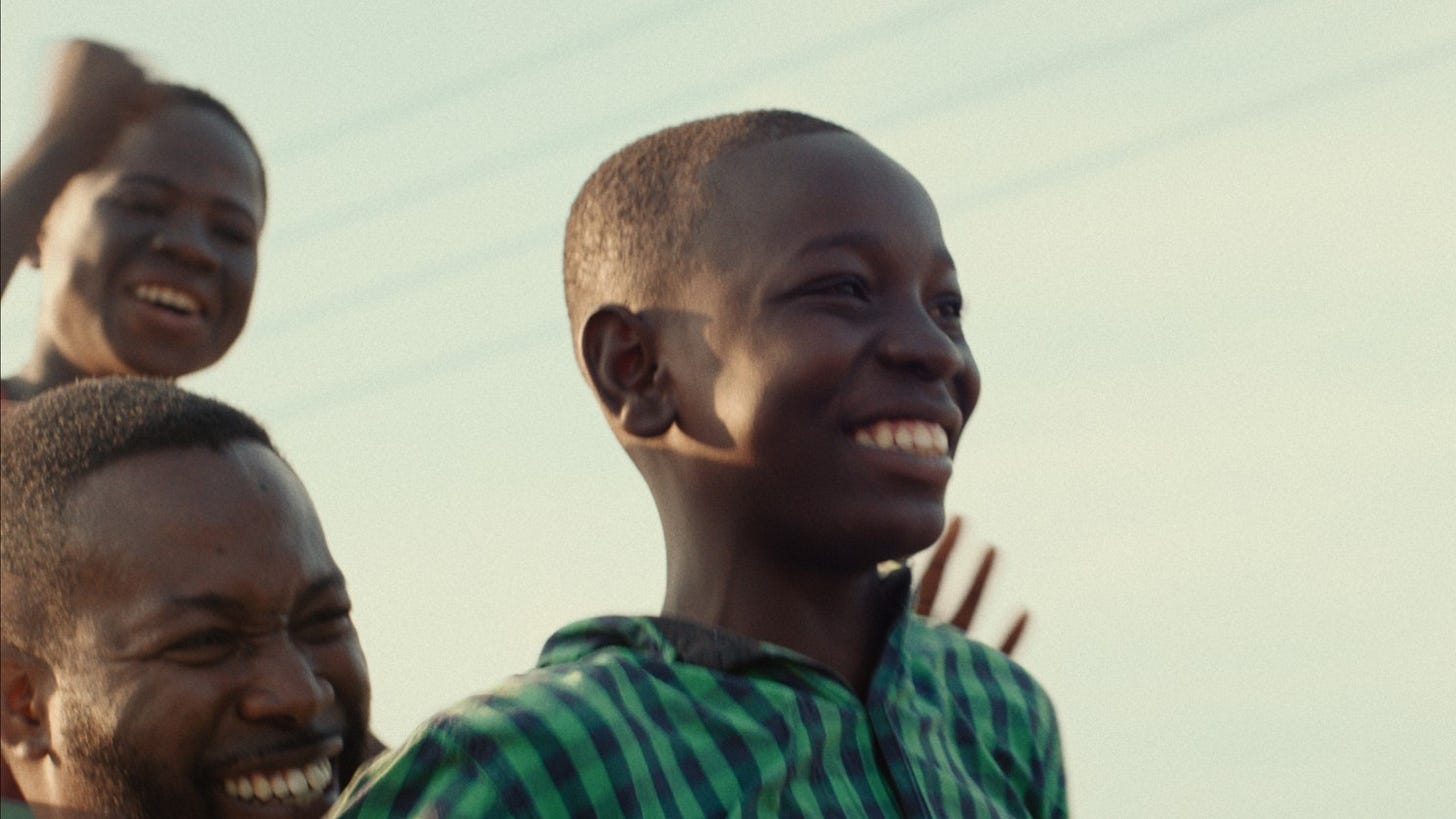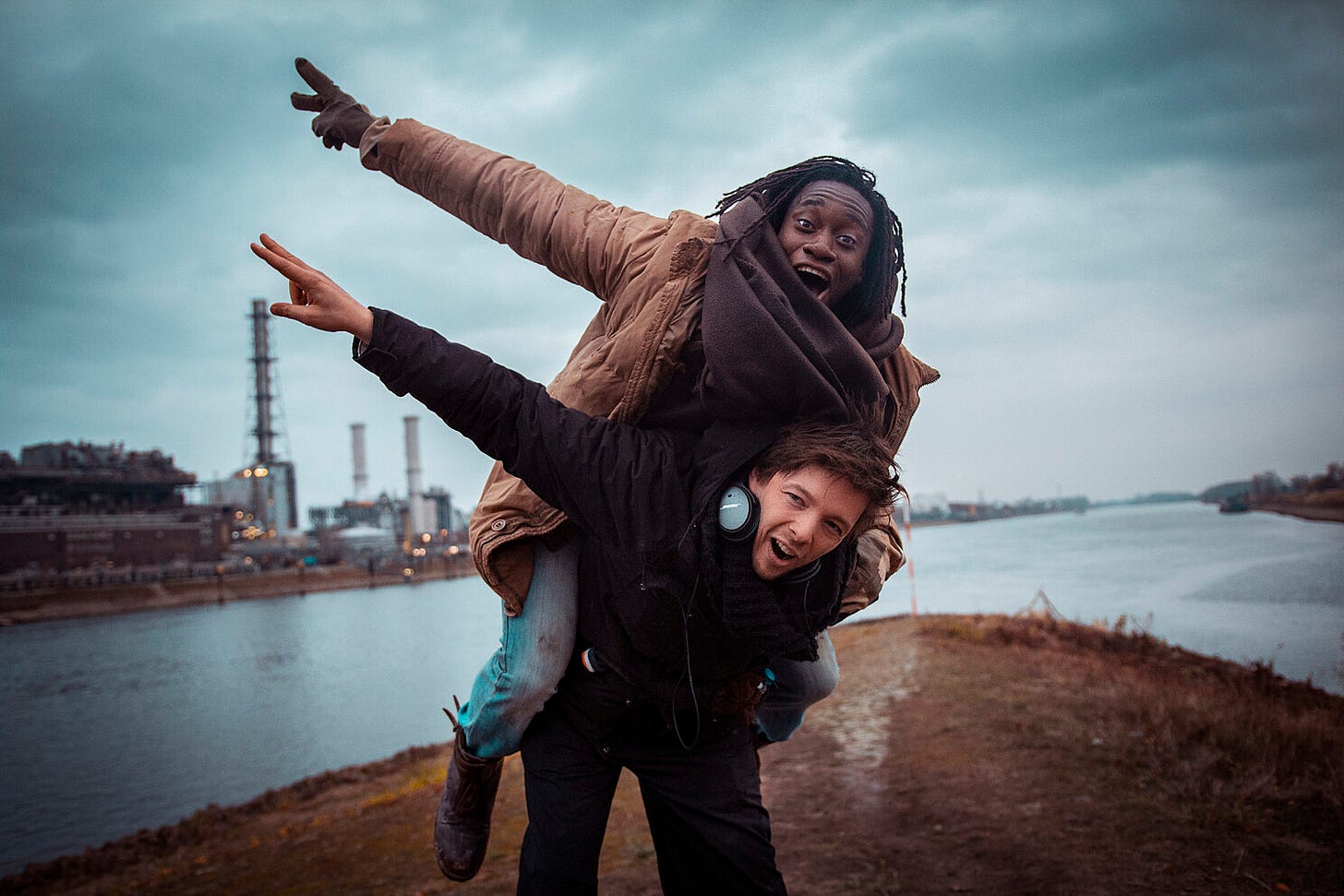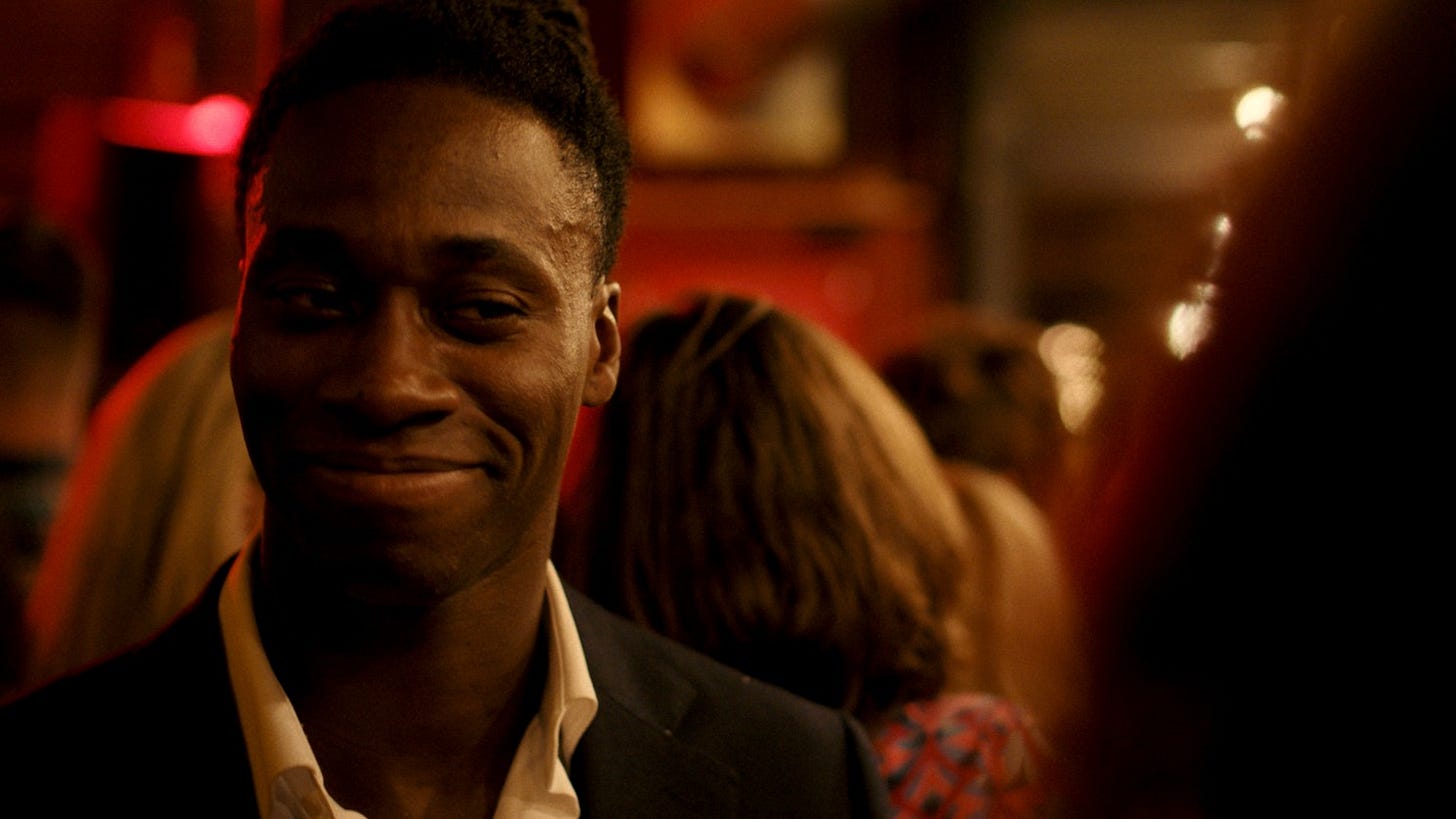York-Fabian Raabe’s Film Borga Shows the Gap Between the Dream & Reality of African Immigrants
Germany or any other place won’t solve your problems. The sacrifice people make is bigger than what they gain.
The genesis of York-Fabian Raabe’s film Borga starts with a news report about a dead body found in the landing gear of a Brussels Airlines plane. It’s a trip that some attempt in search of a better life, but one that almost always ends in death. This led to two-shot films, Between Heaven and Earth and Children of Sodom, before York-Fabian and Eugene Boateng worked on Borga.
Borga is a Ghanaian term meaning a better man, and that’s the perception people have of those who go abroad. They are better and richer except that that’s not always the case. It’s a sensitive matter and one that elicits a lot of debate today, and the subject of this film.
Additionally, York-Fabian places a lot of importance on an appropriate representation of Africa. Far from the mainstream narrative of poverty, he focuses on people’s resilience, which he says is a better way of creating connection.
YAZA Africa talked to York-Fabian about these issues after winning the New Man Award at the International Images Film Festival for Women (IIFF) in Harare, Zimbabwe.
Before Borga, you did a couple of films that eventually led you here. One of them was Between Heaven and Earth, whose idea was borne out of a news report of an African man found dead in a plane’s landing gear. What struck you about that?
That was my first short film. I read that article and I thought it was surreal that people would go to such lengths but it also demonstrates a wish for changing their life. From there, I worked on other films but this was the beginning of everything.
You followed that up with Children of Sodom. How does that and Between Heaven and Earth contribute to Borga?
It’s more of a journey. I don’t have a problem with people going to other countries to try to have a better life. People should have that freedom. But, there are a lot of misunderstandings and that's why people think that once they get to the other side, they’ll have a perfect life, and that’s not always the case.
Coming to Germany or any other place, won’t solve all of your problems. I’ve met a lot of people in different countries who went in search of a better life but when they arrived, they realized that what they found isn't what they hoped for. These people leave their families at home and sometimes, the sacrifice they make is much bigger than what they gain afterwards.
I find all this interesting and in Borga, it goes much deeper into the family dynamics because when you leave the country, everybody thinks you’re rich and they want you to share your riches with them. However, the systems in these other countries don’t really allow you to succeed to the level you envision, yet everybody at home thinks you’ve made it. This misunderstanding is so deep.
This reminds me of the scene where a father is furiously talking to his son asking him to look around and tell him what he sees. The boy says ‘Our neighbourhood’ to which the father angrily says ‘I see losers’.
That scene took place in Agbobgloshie which doesn’t exist anymore. In the movie, it’s portrayed as a place where people from the North go to to make quick money because scrap metal work is always available. These people always say that they are only going to be there for a short period and then move on but they end up staying there forever.
It's supposed to be a stepping stone but the dire situation keeps them there. A lot of people get ill and die early so this is what Kojo’s father is referring to. He never wanted to go abroad. He wanted to make the next step within Ghana. His son (Kojo) interprets it differently and when he meets a Borga (a better man), the thought of going abroad strikes.
Films take a lot of research to put together. What was this process like for you?
This film was done differently. We started with a few people and then when we went to Ghana, we found more people and shot the Children of Sodom. We talked to people about the project and they liked it and we found people who wanted to work with us.
I did all the research in three to four years and the screenwriting in eight. I met Eugene in Germany but I knew him from a previous movie. When he read the script, he loved the depth of research and so together with him, we refined it.
When we filmed in Ghana, all the heads of the departments were black people and for them, it was a surprise because normally, in other professional sets they’ve been in, the British or Americans occupy those roles and they work as assistants. We wanted to make an authentic film so we needed their input.
With the actors and actresses, we worked closely and translated some parts into Twi. Their contributions and ours make the film authentic because it’s not what is in my head. As much as I have an idea of what I want, the true narrative (if you will) came from those around me.
Bearing in mind the Western media portrayal of Africa, did you feel it was your social responsibility to have Ghanaian heads of the department to get an accurate picture of what was happening?
It was complicated for us because part of the idea was to portray characters who start life from the lowest place possible and have dreams of becoming great and then realizing that family is the most important thing. We didn’t want to have pitiful characters. We wanted to show real families, real characters and real connections because it’s important not to portray them as victims but as people who can better their lives.
I know we showed some poverty-stricken places, the rural and countryside and well-off areas that were important to us. What differentiates us from the journalists who only capture the poor side and carry the victim and pity narrative is that we showed that this place has strong and great people who believe they can do something to turn their situation around.
What was it like filming in Accra?
I’m a big fan of Ghana. I’ve been to other countries which I also like but there’s something special about the spirit of the people there. That said, Agbogbloshie is a strange place because it’s people’s home but the environment isn’t conducive for them because it’s used by Western countries as a damp site. This contrast is bizarre and shows how crazy life can be.
The thing about going to such places is that I always try and go in respectfully and we all did. We got the necessary permissions from the chiefs and talked to people about what we were doing.
At first, some were angry because they didn’t want journalists taking pictures of them but when we explained ourselves, they were happy and wanted us to share their story and what the place is like.
Tell us more about working with Eugene
Without Eugene, this film wouldn’t be as big as it is. Apart from the fact that he’s a great actor and person, he’s special because of the way he was brought up. He’s so embedded with his Ghanaian roots, speaks the language, enjoys the food, goes to church every Sunday and still does all those things he was taught growing up.
At the same time, he has a German side and is good at switching sides, which makes him a good fit for this project. I hope he gets another big project because he’s good, there needs to be good scripts for him where he can show how amazing he is.
The other thing is that we are friends and close but when it comes to work, we are very professional, and we are open about our ideas. We trust one another a lot and that makes it work.
What about the rest of the cast?
The cast was diverse in terms of their skill level. Some of the children we used were street children and others trained actors. For example, Emmanuel who was in Beasts of No Nation, was trained by Cary Joji Fukunaga. Adjetey Anang and Lydia Forson are well-known actors in Ghana so they approach their work differently.
For those who didn’t have a background in film, we told them not to show what they think I want to see. They copied the television shows acting style but we encouraged them to think about themselves and show that. At first, they found it strange but it was liberating because the true feelings are strong and pure.
Do you recall your first experience in Africa and how has that changed over time?
It’s surprising how Africa has changed so much over the last 10 years. Ghana is now a different country from when I first visited. I think there’s a lot of potential and power in African countries and I’m happy for the good things that are happening. That said, I hope the traditional things like the special foods aren’t getting lost like in the Western world where everything is McDonald's or Subway.
When it comes to the people, I’ve always had a good way with them. It’s all about respect, and enjoying life despite the struggles.
Has this film changed your perspective on immigration?
Of course. I learnt so much about it, especially in the development and writing phase of the film, and I’m still learning. I’ve always wanted to tell stories that allow the people in the movie to shine. If they are in poor circumstances, let their personalities and humanness shine because that always connects us.
The International Images Film Festival for Women entered its 20th edition in 2023. It’s organized by ICAPA Trust and held in Harare, Zimbabwe, every year. The event focuses on telling women’s stories and the development of female filmmakers.

